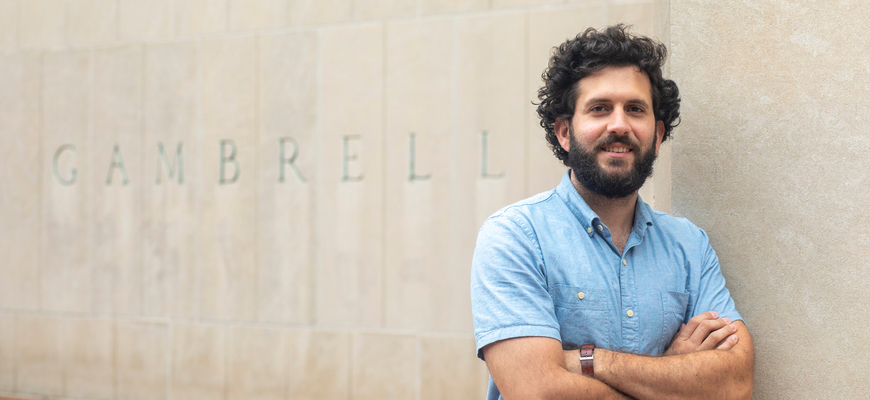
Meet new faculty: Juan Tellez
Posted on: October 28, 2019; Updated on: October 28, 2019
By Chris Horn, chorn@sc.edu, 803-777-3687
Hometown: Cali, Colombia
Education: Bachelor's in political science, University of Florida, 2009; master's and Ph.D.
in political science, Duke University, 2015, 2019
Position: Assistant professor of political science
Your research focuses on conflict resolution and peace processes, particularly in countries that have experienced uprisings or civil war. How did you become interested in that?
I thought I was going to become a lawyer, but in my last couple of years as an undergraduate I got interested in pursuing an academic path, and my professors showed me the path to getting a Ph.D. My dissertation at Duke focused on how the peace agreement was negotiated in the context of the Colombian peace process from 2012 to 2016. That process was happening while I was in grad school, and I traveled there to do field research, talking to community organizations and stakeholders involved in the peace process. Conflicts within countries and peace agreements aren’t just an academic interest for me. I’m Colombian myself — I lived there until I was 10 years old — and my family left at a time when the conflict was at fever pitch.
We have a very narrow idea of what armed conflicts are, who participates in them and how they are fought, but in my own research I argue that conflicts can be very broad and involve many different segments of civil society.
What ended up happening in Colombia’s peace process?
The rebels wanted to avoid jail time and participate in elections as a political party, and they wanted a shift away from government’s punitive approach to the coca trade.
After four years of negotiating with FARC, the revolutionary armed forces of Colombia, the Colombian government expected there would be political backlash, so they decided to put the agreement to a popular referendum, thinking that would buy public support. The referendum very famously failed, and it has become a very contentious and polarizing issue there.
I plan to continue research in Colombia, looking at land reform and land ownership issues. Many Colombians who fled the country have gone back but they don't have titles to their land. This has created a huge administrative and legal hurdle for the government and also raised concerns about the future of the peace process, given that land conflicts are at the heart of the Colombian civil war.
What other countries do you study and teach about?
A lot of my scholarly work has been about Colombia, but I also have projects in India and in Guatemala where I’m looking at crime and policing and civilian interactions with the police. This fall I’m teaching Revolutions and Political Violence, a 400-level course that zooms in on what’s happened in Colombia, Peru, Nicaragua and Guatemala. We have a very narrow idea of what armed conflicts are, who participates in them and how they are fought, but in my own research I argue that conflicts can be very broad and involve many different segments of civil society.
What else are you teaching?
I’m also teaching a methods course for undergraduates that emphasizes building skills in the programming language R, and topics in causality. It will give them the programming know-how to get off the ground in quantitative research and become more critical consumers of research in the media. In the future, I want to create a course that’s specific to Latin America.